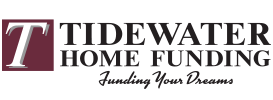
Even if you’re not in the process of buying a home right now, you’ve probably heard the term escrow before but maybe you don’t know exactly what it means. The more understanding you have of the homebuying process and the terms that come up, the more confident you’ll be going into it and the less surprises you’ll encounter along the way! So, let’s breakdown what escrow is and how it applies to you as a homebuyer or seller.
What is Escrow?
Put simply, escrow is a legal arrangement in which a third-party temporarily holds large sums of money (called Earnest Money) or property until a transaction is complete. Escrow is meant to protect both parties of a large sale.
Types of Escrow
In real estate, escrow is typically used in two cases:
1. To protect both buyer and seller of a home sale transaction while it’s being finalized
2. To hold a homeowner’s funds for taxes and insurance
Because of the different types of escrow, lenders will typically have buyers put money into different escrow accounts. Let’s take a look at how each type of escrow works.
Escrow for Home Purchases
In homebuying, you’re “in escrow” when the seller accepts a buyer’s offer. The buyer will put up earnest money ranging from a few hundred dollars to 2-3% of the home’s value, depending on the market, as a sort of collateral on the purchase.
The buyer’s earnest money goes into an escrow account instead of going directly to the seller. Third-parties, called title companies, always handle escrow for home purchases and manage these types of escrow accounts. The buyer’s earnest money is then held in escrow until closing when all of the inspections are completed, paperwork is signed, and the transaction is final.
If the seller backs out or cannot complete the sale for whatever reason, the funds in escrow are returned to the buyer. However, if the buyer backs out of the sale, the seller often keeps the money in exchange for lost time while their home was off the market. If the transaction goes through, the earnest money is applied to closing costs and/or the down payment.
Escrow for Home Taxes and Insurance
Escrow is most commonly thought of as a step in the homebuying process, but escrow can also come up later in homeownership in the form of mortgage escrow.
Over the course of owning your home, you’ll owe various things like property taxes or homeowners insurance. In addition to your monthly mortgage payment, your lender may have you put additional funds into an escrow account held by the lender. While home purchase escrow accounts are managed by a title company, mortgage escrow accounts are managed by the lender. When property taxes or insurance premiums are due, they’ll use this account to cover the balance. The escrow accounts are ultimately managed by a third-party servicer, just like in a home sale.
The amounts you owe each year for tax bills and insurance premiums vary. Your servicer will try to estimate required payments based on previous years when setting up your escrow account to make sure they’re not over or under collecting. If there are any deficiencies or surpluses, these will be calculated into the fees for the following year, and your monthly mortgage payment will be adjusted accordingly.
Escrow accounts don’t cover things like utility bills, HOA fees (Homeowner Association), or supplemental tax bills.
You don’t need an escrow account after you’ve purchased your home, but you will have to make sure you’re saving separately for property taxes and insurance premiums, and depending on the loan you get, an escrow account may be required. For example, VA loans require 10% down and a strong credit profile to opt-out of an escrow account while FHA loans require all borrowers to have an escrow account.
Last Thoughts on Escrow
Escrow is an important part of the homebuying process and is established to protect the buyer, seller, and lender in a home purchase. It also helps you conveniently pay taxes and insurance premiums on your home.
Real estate escrow service fees for the third-party service are added onto closing costs and are often split between the buyer and seller. Escrow fees aren’t usually more than a few hundred dollars, but it’s important to remember.
Now when you hear the term “escrow” it won’t sound like foreign, confusing industry jargon, you’ll know exactly what it means!

